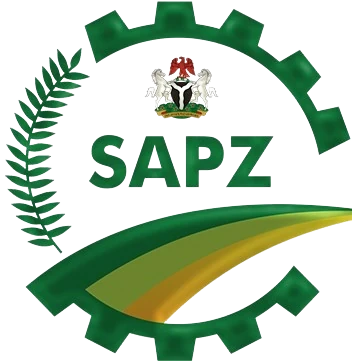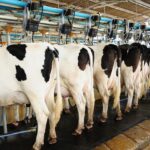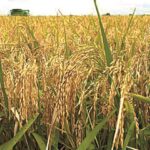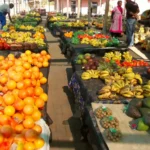- Country background
The International Fund for Agricultural Development (IFAD), a specialized agency of the United Nations, was established as an international financial institution in 1977. IFAD is dedicated to eradicating rural poverty in developing countries. Over 70 percent of the world’s poorest people – 1.4 billion women, children, and men – live in rural areas and depend on agriculture and related activities for their livelihoods. IFAD’s overarching development goal is to invest in rural people to enable them to overcome poverty and achieve food security through remunerative, sustainable, and resilient livelihoods. IFAD’s commitment to this cause is unwavering. To achieve this goal, IFAD pursues three closely interlinked strategic objectives: to increase poor rural people’s productive capacities, increase poor rural people’s benefits from market participation, and strengthen the environmental sustainability and climate resilience of poor rural people’s economic activities. - Background on project
The International Fund for Agricultural Development (IFAD) is financing and supporting three agricultural projects in Nigeria – the Value Chain Development Programme (VCDP), the Special Agro-Industrial Processing Zones (SAPZ), and the Livelihood Improvement Family Enterprise in the Niger Delta Region of Nigeria (LIFE-ND). These projects have incorporated digital innovations, solutions, and platforms to enhance their implementation and impact. Each project has a Monitoring and Evaluation (M&E) system that supports related programming and activities. However, there is a need for an integrated M&E system, which will manage all the current projects and new ones, which is a testament to the integral role of stakeholders in the success of these projects. This integrated system will provide a comprehensive view of the projects’ progress, identify areas for improvement, and ensure efficient resource management. In addition, the system will ensure data inconsistencies are resolved and a framework to harmonize definitions and terminologies between the project measurement indicators is in place.
IFAD commissioned a needs assessment, which has identified several gaps and challenges that hinder the effective utilization and integration of these M&E systems. The key findings and recommendations from the assessment report highlight the need for an Integrated Monitoring and Evaluation (M&E) System. The existing M&E systems across the projects face challenges such as a need for unified reporting frameworks, automated data extraction, data governance quality and consistency, and integrating datasets across projects. An integrated M&E system is recommended under the joint implementation by all FGN/IFAD projects through the coordination of the Country Programming Advisory Team (CPAT) with co-financing by all projects (LIFE-ND, VCDP, and SPAZ) to address these challenges, enhance transparency, accountability, enable evidence-based decision-making, and program improvement. - Background of the assignment
A vital component of the M&E process is setting clear and measurable objectives that guide the collection and analysis of data. The proposed system should be capable of accommodating continuous growth as far as new technologies are concerned. The system should be purpose-built for the projects, relevant stakeholders and beneficiaries’ use and support. An efficient M&E system will:
i. Facilitate continuous data input, analysis, reporting, and storage.
ii. Facilitate project management, accountability, and learning to improve performance
iii. Provide reporting functionalities for all implementing and executing actors collaboratively.
iv. Define administrative rights and data exchange levels.
v. Integrate various project components and ensure effective measurement of inputs, outputs, and outcomes.
vi. Support expansion and integration of new projects.
vii. Include knowledge management interfaces and visualization dashboards
This ToR guides the development of the integrated M&E system for project activities, including digital innovations, technologies, and tools in project areas in Nigeria. The selected vendor will play a critical role in ensuring effectiveness and sustainability, as well as monitoring and measuring the impact of project progress. Thus, ultimately, the system enhances the provision of evidence and reporting of Nigeria’s agricultural productivity and farmer livelihoods. The ToR outlines the scope of work and expected deliverables for the M&E system. The system should be able to integrate with other project activities related to bundled services, e-vouchers, and farmer registries. This RFP aims to ensure the supply, installation, and commissioning of a comprehensive, integrated, and effective M&E system. A standout feature of the system is its ability to provide automated reports on project Key Performance Indicators (KPIs) and recommend progress and broader policy options, enabling strategic decision-making. - Overall objectives
To develop an integrated M&E system that can significantly enhance your project progress monitoring, evaluation, reporting, and learning.
Kindly download the below links for more details please.
Terms-of-Reference-for-the-Supply-Installation-Configuration-and-Commissioning-of-Monitoring-and-Evaluation-System.-ApprovedDownload






Recent Comments